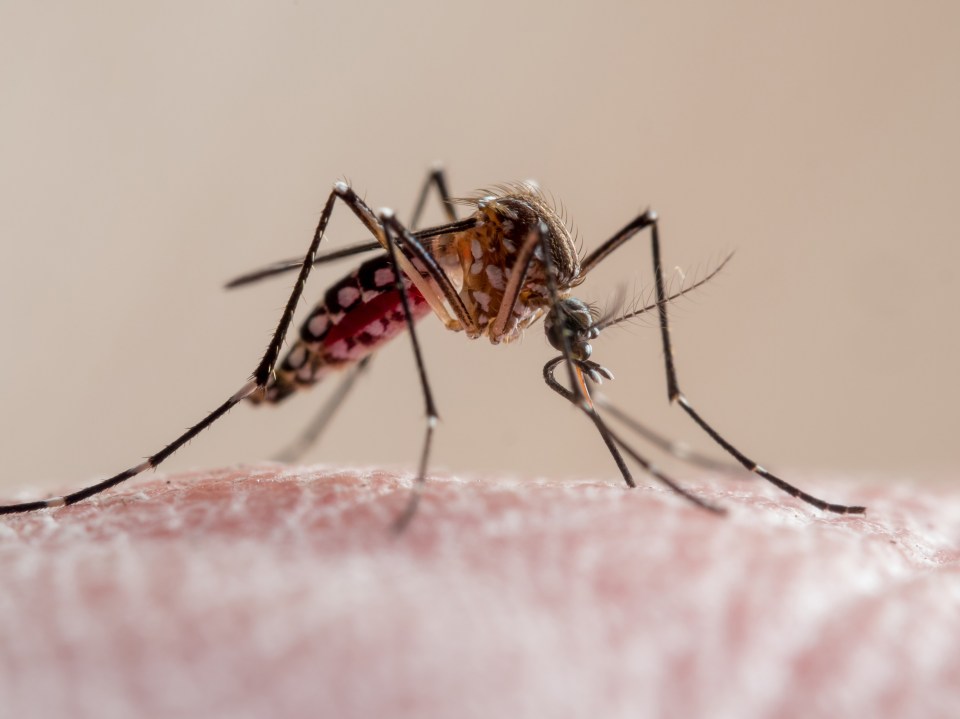Dengue Cases Surge Among Travellers Returning to the UK
An alarming rise in dengue fever cases has been reported in individuals returning to Britain from overseas, according to recent official data. As holidaymakers prepare to travel, health officials are urging them to take necessary precautions when visiting regions where this potentially deadly infection is prevalent.
The mosquito-borne disease, often referred to as ‘breakbone fever‘ due to the severe pain it causes, saw a significant spike, with 904 cases recorded in the UK in 2024. This marks a remarkable 43% increase from the 631 cases reported the previous year and represents the highest number of cases documented in the UK since 2009. The majority of these cases were linked to travel in southern and southeastern Asia, although there has also been a noticeable increase in cases from European destinations such as Spain and Italy.
Dr. Philip Veal, a Consultant in Public Health at the UK Health Security Agency (UKHSA), emphasized the importance of preventive measures: “Simple steps, such as using insect repellent, wearing protective clothing, and sleeping under insecticide-treated bed nets, can significantly reduce the risk of contracting mosquito-borne infections.” He also advised travelers to consult the TravelHealthPro website for the latest health recommendations related to their destination, including any suggested vaccinations.
“Even if you have visited a country before, it’s crucial to remember that you do not have the same level of immunity against infections as local residents and are still vulnerable,” Dr. Veal added.
Dengue fever typically manifests with sudden onset fever, severe headaches, pain behind the eyes, joint and muscle pain, along with nausea and vomiting. The term ‘breakbone fever‘ reflects the excruciating pain suffered by individuals. Symptoms generally appear within four to ten days following a mosquito bite, which means that holidaymakers often fall ill shortly after returning to the UK.
Most individuals infected with dengue recover within one to two weeks; however, some may develop a more severe form of the disease known as severe dengue. This critical condition affects approximately 5% of those infected and can be fatal, with estimates suggesting that it can lead to death in half of the severe cases.
Symptoms of severe dengue include:
- Intense abdominal pain
- Persistent vomiting
- Rapid breathing
- Bleeding from gums or nose
- Extreme fatigue and restlessness
- Presence of blood in vomit or stool
Moreover, the UK has observed a rise in imported cases of Chikungunya, another mosquito-borne illness. In 2024, there were 112 cases reported, more than double the 45 cases in 2023, with most linked to travel in southern Asia. Additionally, Zika virus cases have increased to 16 in England, Wales, and Northern Ireland, up from 8 in the previous year, primarily involving travelers returning from southeastern Asia. While Zika is infrequently reported and usually results in mild illness, it poses a significant risk to pregnant women, as it can be transmitted to the fetus.
With no available vaccine or specific medication for dengue, the best preventive measure remains minimizing exposure to mosquito bites.
Symptoms of Dengue Fever

According to NHS guidance, dengue fever may not always present symptoms. When symptoms do occur, they typically surface within four to ten days after being bitten by an infected mosquito. Symptoms can resemble those of the flu and may include:
- Fever
- Severe headache
- Pain behind the eyes
- Muscle and joint pain
- Nausea and vomiting
- Widespread rash
- Abdominal pain
- Loss of appetite
There is currently no cure or specific treatment for dengue. Patients can manage their symptoms through pain relief, staying hydrated, and ensuring ample rest. In rare instances, dengue symptoms can escalate into severe dengue, which poses a greater risk, particularly to elderly patients or those with pre-existing medical conditions. Symptoms of severe dengue may include:
- Severe skin bleeding with spots of blood on and under the skin
- Blood in urine and stools
- Respiratory distress, where the lungs cannot supply sufficient oxygen to the vital organs
- Organ failure
- Altered mental state and unconsciousness
- Dangerously low blood pressure
If you experience any of the severe symptoms, it is crucial to call 999 or visit the nearest A&E immediately.